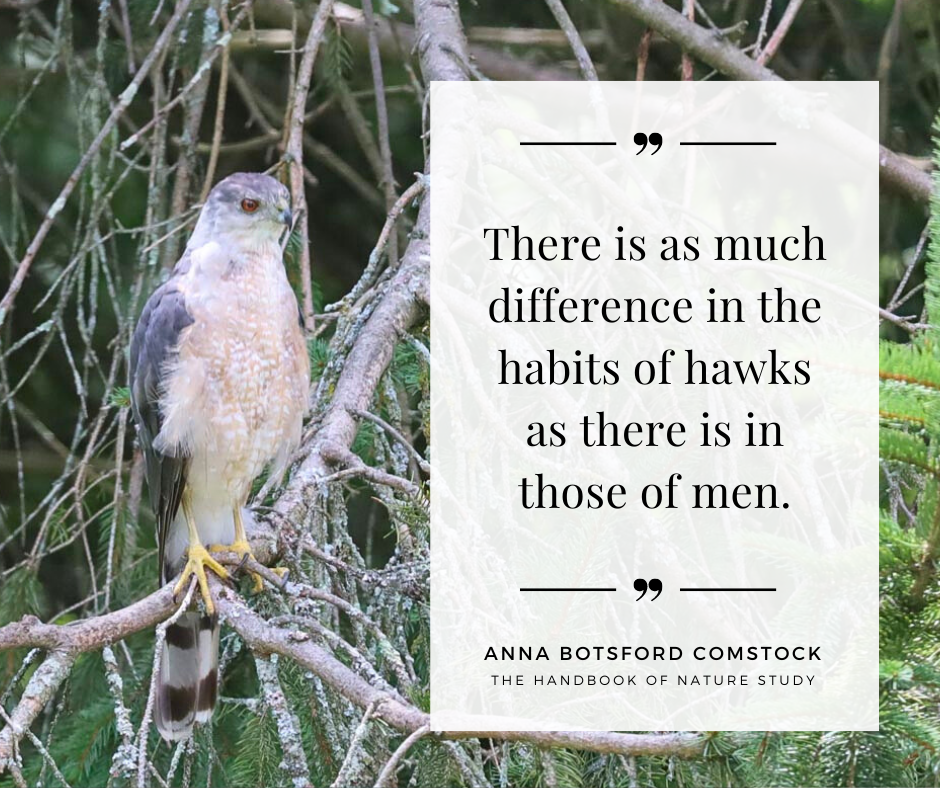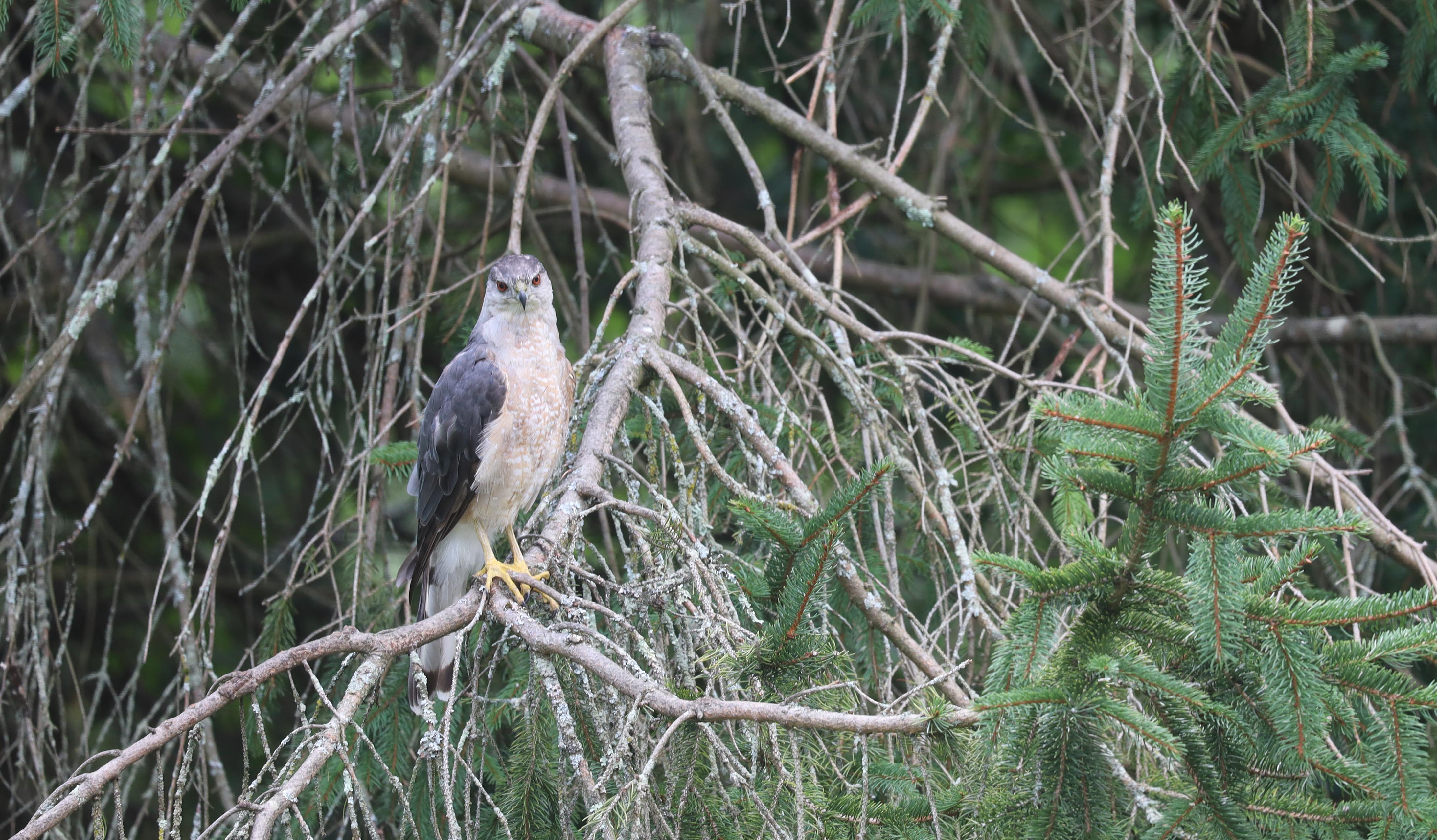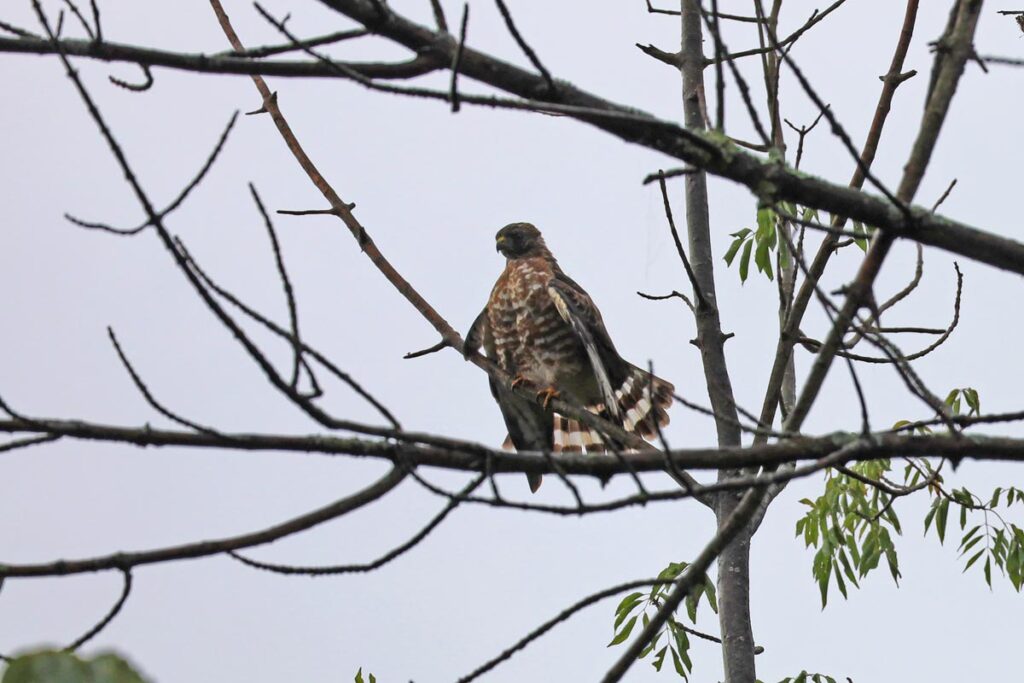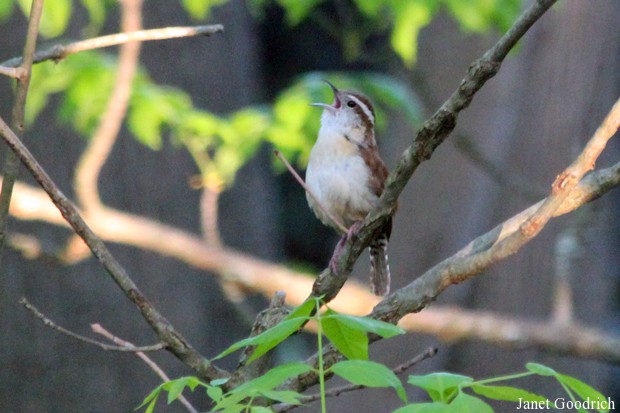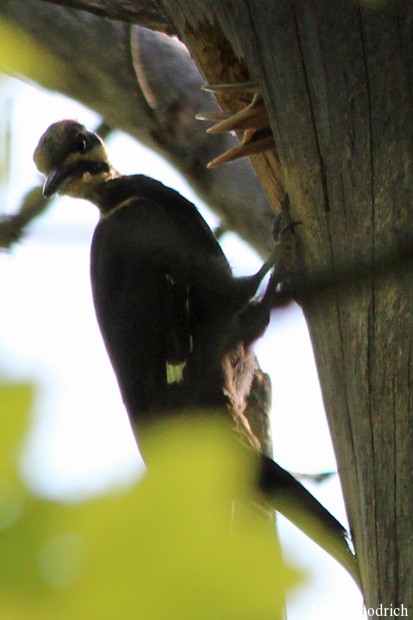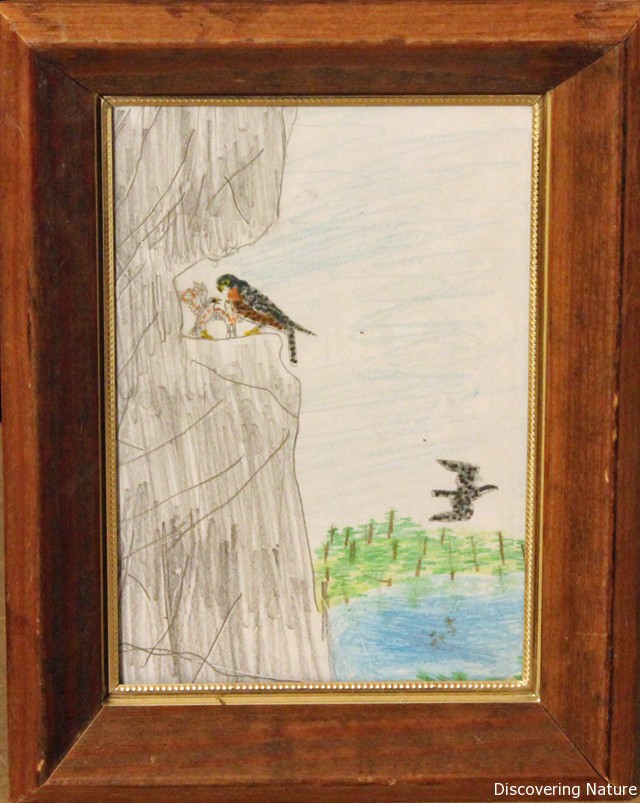-
Field Notes: Cooper’s Hawk
According to Anna Botsford Comstock, “It is the teacher’s duty and privilege to try to revolutionize some popular misconceptions about. . . hawks.” They are, she argues, “most unjustly treated, largely because most farmers consider that a ‘hawk is a hawk,’ and should always be shot to save the poultry, although there is as much difference in the habits of hawks as there is in those of men” (104).
She’s writing in defense of the Red-tailed and Red-shouldered hawks. Unfortunately for the Cooper’s hawk, she considers it “to be feared” because it is “very destructive to poultry.”
Admittedly this hawk is intimidating to look at. Its red eyes, lowered brow and habit of hunting other birds athletically through even dense foliage make it a cause for dread among songbird lovers. Mature hawks have blue-gray backs and long, striped tails. From our dining room window, we’ve seen a few birds expertly snatched in the Cooper’s hawk’s strong talons. Its habit is to squeeze its prey to death before consuming it, often mantling over it on the ground or in a tree to fend off other distressed birds. This post from a few years ago shows a Cooper’s hawk mantling — till another predator scares it away.
I don’t keep poultry, so I’ve never seen a Cooper attack a chicken. But I love the songbirds and hate to see it take one.
Comstock points out the distinctive flight of these hawks, noting that they “flap their wings for a time and then glide a distance. They do not soar on motionless outspread pinions by the hour” (105). All About Birds adds some fascinating facts, including the discovery that almost a quarter of the Cooper’s hawk skeletons in one study showed healed-over chest fractures. When we see the speed and agility of their flight, it’s not hard to understand how a collision with a tree might happen.
If a Cooper’s hawk targets birds at your feeders, you can take them down for a few days and it will move on. However, if you have a pair that have long regarded your neighborhood as their territory for nesting and hunting, that solution doesn’t work too well. You can remove the feeder permanently if you don’t want to aid and abet the Cooper. But if this predator is only an occasional visitor, you can consider whether it does more good to the birds to leave the feeder up or take it down.
What have you been seeing in your yard or nature walks this week?
